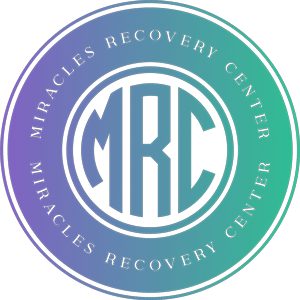Understanding the role of vodka consumption is crucial when considering recovery from alcohol dependence. Vodka, like any alcoholic drink, can have significant impacts on your body and mind. By recognizing these effects, you can better navigate your journey towards sobriety. This blog will delve into various aspects of vodka consumption and its importance in the recovery process.
How Vodka Affects the Body and Mind
Vodka, despite its clear and seemingly innocent appearance, has profound effects on both the body and mind. Learning about these effects is crucial because they can influence various aspects of health and decision-making.
The consumption of vodka can lead to significant changes in mood and cognitive function. Alcohol is a depressant, meaning it can slow down the processing speed of the brain, affecting coordination and judgment. Over time, excessive consumption may contribute to long-term mental health issues such as anxiety and depression.
From a physiological standpoint, vodka can impact the liver, heart, and other essential organs. It places a strain on the liver, which processes toxins from the body, potentially leading to conditions like fatty liver disease or liver cirrhosis. Cardiovascular health can also suffer, with increased risks of high blood pressure and heart disease.
The Importance of Moderation
Understanding the idea of moderation can help you recognize the difference between social consumption and dependency. In recovery, this understanding can highlight the dangers of excess and guide better decision-making.
Moderation is more than just an act of will; it is a skill that can be honed. By learning and practicing moderation, individuals can enjoy occasional indulgences without succumbing to the pattern of addiction. This balance can be an important strategy for those in recovery.
It’s crucial to note that moderation doesn’t work for everyone. For individuals with alcohol addiction, even moderate drinking can trigger a relapse. Recognizing personal limits and abstaining completely might be the most beneficial strategy for many on the road to recovery.
Identifying Triggers Related to Vodka
Knowing what triggers vodka consumption is vital in recovery. These triggers can be emotional, social, or situational. Identifying them can help you develop strategies to avoid or manage them effectively.
Emotional triggers are often the most challenging to address. Stress, loneliness, or depression might compel someone to reach for a bottle of vodka as a form of escape or self-medication. In identifying these emotions, it’s essential to develop healthier coping mechanisms, such as exercise or meditation, to replace alcohol use.
Social settings often involve alcohol, and situational triggers could include parties, dinners, or networking events where vodka is present. Preparing for these instances with a plan, such as having a friend support you or choosing non-alcoholic options, can make a significant difference in maintaining sobriety.
Alternatives to Vodka During Recovery
Exploring non-alcoholic alternatives ensures that you can enjoy the social aspects of drinking without the risks. These alternatives can play a big role in helping maintain sobriety while still participating in social activities.
There are a variety of non-alcoholic beverages available that mimic the taste and experience of vodka without the harmful effects. For instance, mocktails have become increasingly popular, providing a wide array of choices ranging from fruity to spicy, mimicking the complexity of alcoholic drinks without the alcohol content.
Finding activities that don’t center around alcohol can also provide alternatives. Engaging in hobbies like sports, arts, or volunteer work can provide fulfillment and joy, reducing the need or desire for vodka consumption.
Building a Support System
Having a strong support system in place is crucial in recovery. Family, friends, and support groups can provide the necessary encouragement to stay on the path of sobriety and resist the temptation of vodka.
Support groups such as Alcoholics Anonymous give individuals a sense of community and accountability, which can be incredibly motivating and comforting. They offer a safe space to share experiences and learn from others who have faced similar challenges.
Open communication with family and friends can also bolster recovery efforts. Letting loved ones know your goals and struggles allows them to provide needed support. Whether through positive reinforcement or simply spending quality time together, this support can play a pivotal role in achieving and maintaining sobriety.
Final Thoughts
In conclusion, understanding vodka consumption and its impacts can greatly aid personal recovery journeys. Awareness empowers you to make informed choices and to avoid potential pitfalls in your path to sobriety. Embrace knowledge as a tool in your recovery and stay committed to your well-being.





